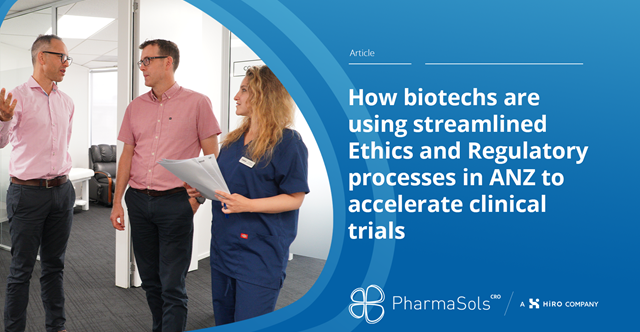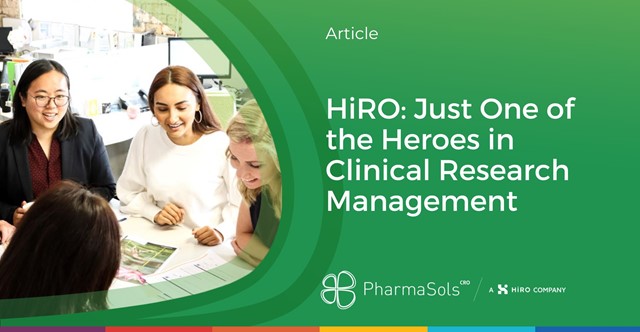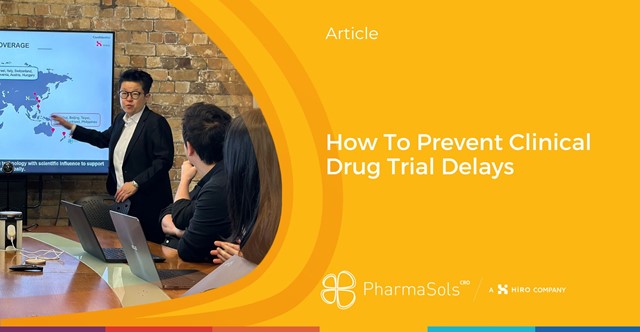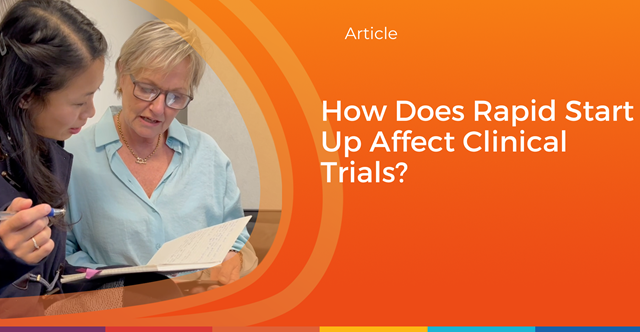21 Jul
How biotechs are using streamlined Ethics and Regulatory processes in ANZ to accelerate clinical trials

We’ve always heard about the saying, time is money. You might wonder how this applies to clinical trials.
Ethics and regulatory processes are seen as a key limiting factor in the study start-up phase of a clinical trial.
Australia and New Zealand have some of the fastest and streamlined regulatory environments in the world. So, it’s no surprise that more and more biotechs are conducting clinical trials in this region.
In addition to the streamlined ethics and regulatory processes, costs associated with these submissions are relatively low compared with many other regions, such as the US and Europe. The ANZ region does not require an IND application to conduct clinical trials, saving up to a year in regulatory timelines and considerable costs for the sponsor. Furthermore, full GMP material is not mandated for Phase I clinical trials in Australia and New Zealand.
These streamlined processes might raise the question of whether quality of data is compromised to achieve speed. We can confirm that high quality data is generated by clinical trials in Australia and New Zealand which is accepted by all major regulatory bodies in the world – such as the FDA and EMA.
Importance of a local CRO
PhRMA recently put the average cost of a successful drug trial at around $2.6 billion. The cost per day can fall anywhere between $600,000 and $8 million.
Global sponsors are looking at Australia and New Zealand in an effort to save time and money when running clinical trials.
When coming to the ANZ region, companies are turning to local CROs to help them navigate the ethics and regulatory frameworks. While regions like Australia and New Zealand present with some of the fastest Ethics and Regulatory approval environments globally, both come with unique regional and cultural requirements that play vital roles in the application process.
Local CROs have intricate knowledge of their country's ethics and regulatory requirements. They have strong relationships with both ethics and regulatory body representatives – assisting better communication. Local CROs can usually be notified about the availability for the ethics meetings, which can enable them to align the application hand-in accordingly to prevent a 2-4 week delay in the entire process.
In addition to this, these local CROs will also have more established and trusted relationships with sites and local experts to gain insight regarding issues that may arise. These relationships within the industry assist with topics such as the specific standard of care available in the region for the indication of interest to align the study design accordingly, and the specific certification requirements (e.g., GMP certification) for the sponsors to run the clinical trial in the region.
How PharmaSols can support your trials
The key to PharmaSols’ success is our dedicated in-house start-up team and regulatory expert. This team employs highly efficient processes to capitalise on Australia and New Zealand’s ethics and regulatory timeframes, providing sponsors with rapid and cost-effective solutions.
Now that we have discussed what the ANZ region has to offer along with why using a local CRO is the way to go, here are some recent examples demonstrating how PharmaSols can support your trials.
Understanding New Zealand’s centralised ethics and regulatory bodies' processes and timelines, PharmaSols swiftly obtained the necessary Ethics and Regulatory approvals prior to the first site initiation visit (SIV) – resulting in 35-day study start-up.
Similarly, for a complex Phase 1b oncology study, Rapid regulatory timelines were achieved in both Australia and New Zealand. In both countries, PharmaSols made regulatory submissions in 1 day. Full regulatory approval was granted in only 8 days in Australia and 13 days in New Zealand.
For COVID-19 specific vaccines and diagnostics, we were aided by the fact that Australia and New Zealand have implemented expedited ethics and regulatory timelines for COVID-19 related studies, supporting their rapid study start-up.
With the support of this framework, PharmaSols submitted the necessary ethics application in one day and secured ethics approval in just 14 days. We obtained regulatory approval within just 3 days of receiving the final protocol for a COVID-19 vaccine trial.
Likewise, for a COVID-19 diagnostic trial, PharmaSols received ethics and regulatory approval in only 21 days from receiving the protocol for a covid-19 diagnostic.
PharmaSols
PharmaSols is uniquely positioned in Australia and New Zealand, one of the world’s most trusted and rapidly growing clinical trial regions. With over 20 years of experience in this region and a team of dedicated start up specialists, we ensure the success of any trial’s Ethics and Regulatory application. On top of that, we can successfully achieve rapid start-up in 35 days (even less in COVID-19 related trials).
In addition to this, PharmaSols takes a creative problem-solving approach, has a trusted network of experts, and maintains a people-driven attitude, so you can be confident that your trial will remain on track and meet its targets.
For more in-depth information about the ethics and regulatory frameworks in the ANZ region, please see this white paper.
Other News
March 2024 (1)
February 2024 (1)
December 2023 (1)
November 2023 (1)
October 2023 (1)
September 2023 (2)
August 2023 (1)
July 2023 (1)
June 2023 (2)
May 2023 (3)
April 2023 (1)
March 2023 (2)
The Go-to region for clinical trials (1)
HiRO – our global advantage, tailored solutions and key partnerships (1) (1)
HiRO – an emerging full-service global CRO (1)
HiRO – Top CRO in APAC 2022 (1) (1)
November 2022 (1)
October 2022 (1)
September 2022 (1)
August 2022 (1)
July 2022 (1)
June 2022 (1)
May 2022 (1)
April 2022 (1)
March 2022 (1)
January 2022 (1)
December 2021 (1)
November 2021 (1)
October 2021 (2)
September 2021 (2)
August 2021 (3)
July 2021 (3)
June 2021 (2)
May 2021 (1)
April 2021 (2)
March 2021 (1)
February 2021 (1)
December 2020 (5)
November 2020 (1)
October 2020 (5)
September 2020 (1)
August 2020 (2)
May 2020 (5)
January 2024 (0)



